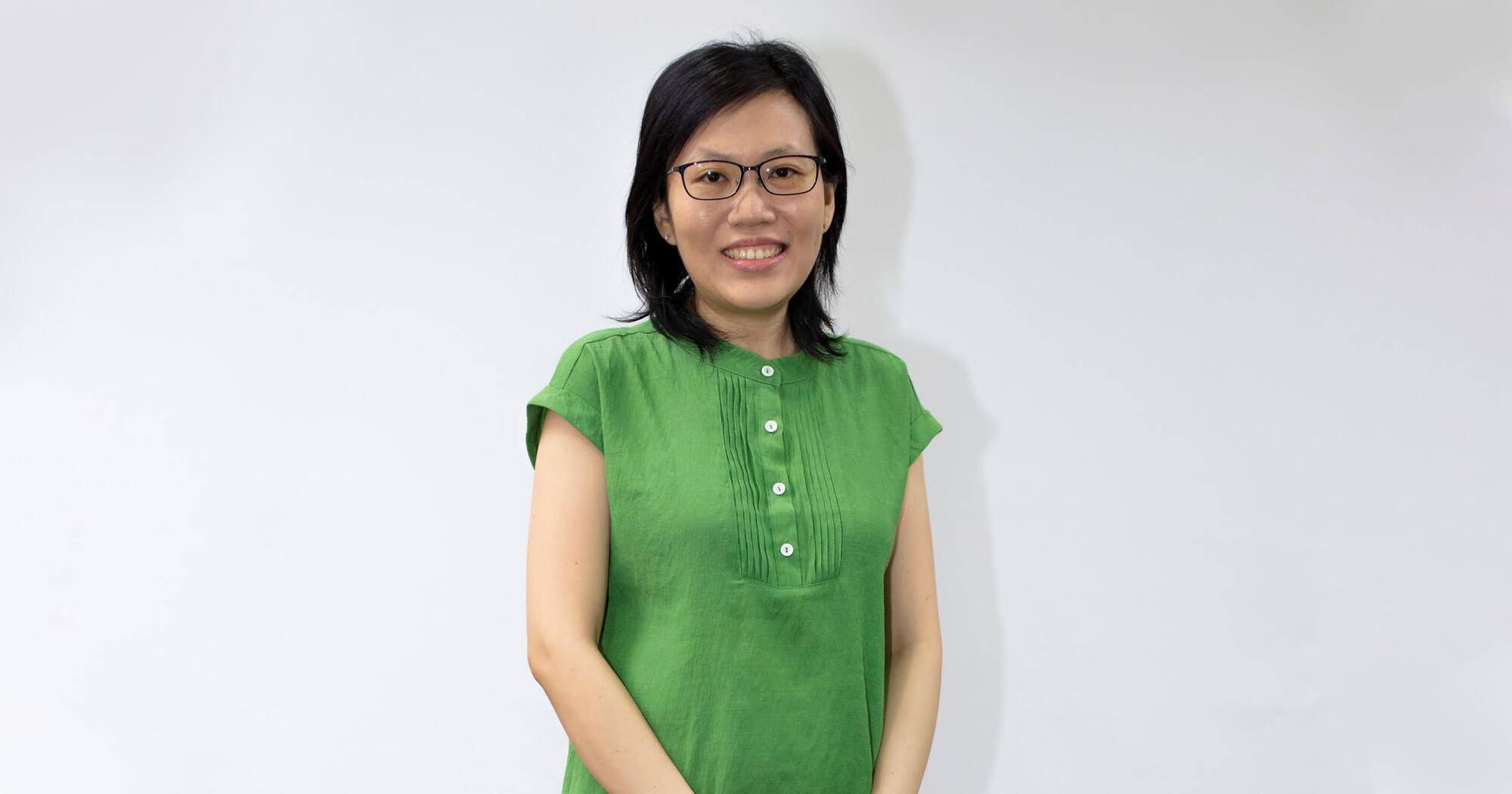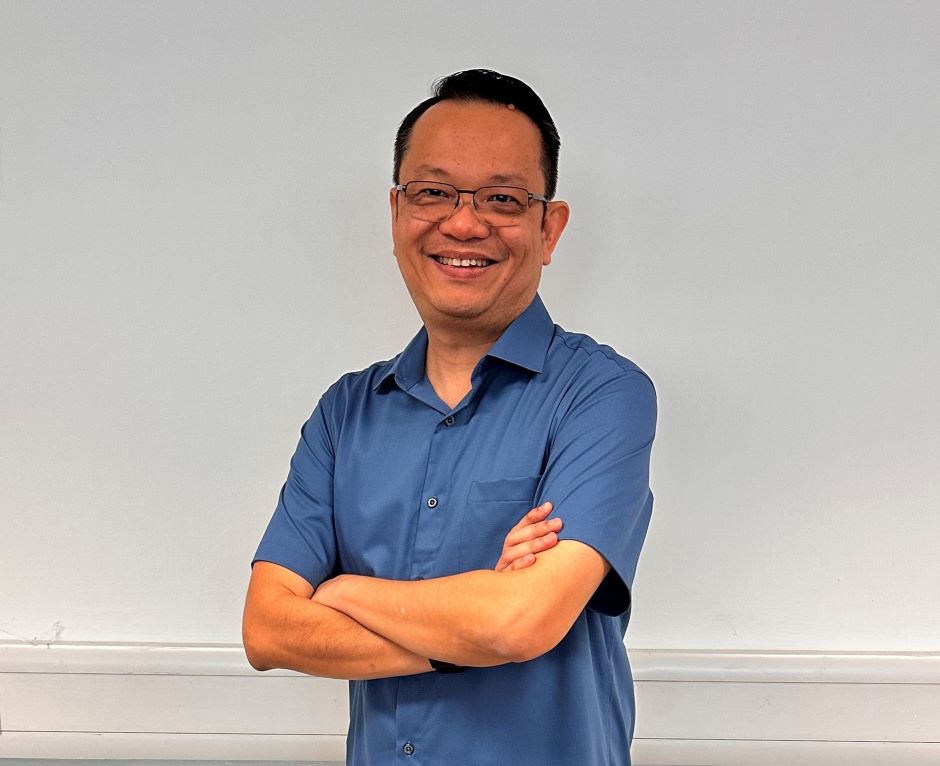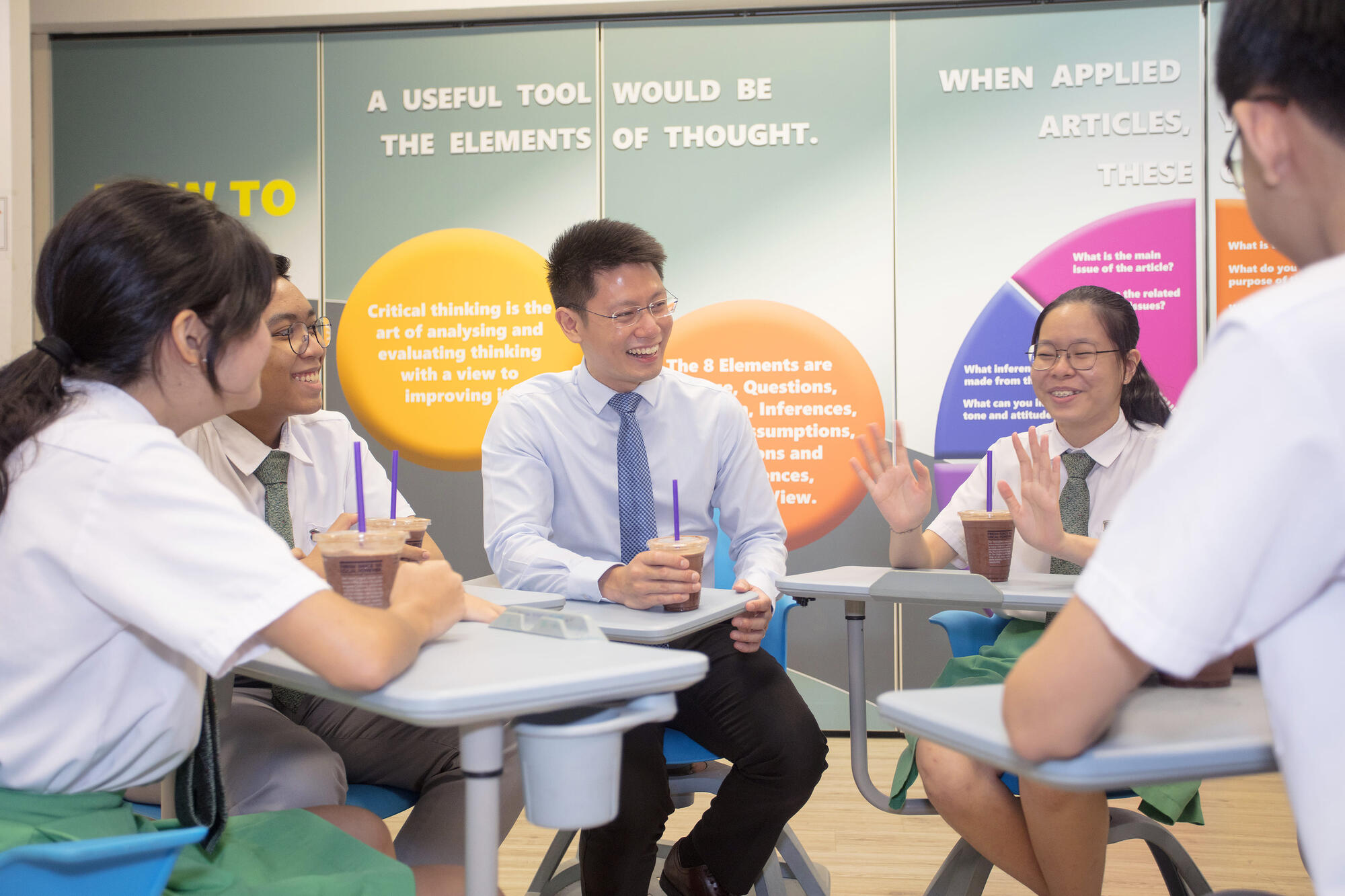Poon Mei Ming, Zhenghua Primary, President’s Award for Teachers 2020 Finalist
There is something about Poon Mei Ming.
Shy, anxious, diffident students blossom in her care into confident individuals with a sense of purpose.
Take B K Preethi.
Too timid to ask questions in class, Preethi floundered in English until Mei Ming became her English teacher in Primary 5 and 6.
Mei Ming gently encouraged Preethi to approach her for help during Open Consultation, a period at Zhenghua Primary when Primary 6 students can seek individual guidance from teachers. In this one-on-one setting, Preethi plucked up the courage to talk and ask questions. This was a turning point for her.
“Students often think that because they have done badly in a test, they are no good,” said Mei Ming. “In my chats with them, I reframe the challenges. For instance, the problem could be something as simple as lack of sleep or nervousness before tests. I get to the root of the issue and then share with them strategies that can help them overcome it.”
To help Preethi build her confidence, Mei Ming asked her to do a demonstration for her P6 cohort on how to carry themselves during the PSLE oral examination. She did a great job and received affirmation from her peers.
Preethi went on to become an ambassador for her secondary school, promoting her school to Primary 6 students. She also volunteers as Young Docent to students who visit the museums. She is also a Youth Science Ambassador who educates children about science in a fun and engaging way. She said, “Miss Poon impacted me in many ways…. She paved my way to success.”
Teach them to learn
“Psychology complements my work in teaching,” said Mei Ming. “It helps me to be more aware of what a student needs.” And she uses her knowledge to help students have a deeper understanding of their learning challenges and needs.
For instance, Mei Ming started the “Learning How to Learn” initiative at Zhenghua Primary.
During these sessions, Mei Ming and another teacher explained to Primary 5 and 6 students how the brain works and ways to learn more effectively. These are a series of sessions.
They try the Pomodoro Technique in which students set a timer for 25 minutes and focus on studying the topic at hand. This is followed by a five-minute break.
There’s Interleaving, in which students mix different topics or forms of practice. For example, they could switch between different types of questions requiring various techniques across different topics of the subject.
There’s Chunking, which is breaking a topic into manageable chunks and mastering each chunk until you form a bigger picture in your mind.
There is also the technique of Active Recall, where students test themselves every time they learn something new. This is important to consolidate new knowledge.
Mei Ming also discusses neuro myths, such as the claim that we only use 10% of our brain. “I tell them this is not true at all…. Our brain is constantly active.”
These techniques are more than studying tips. They are “practical handles” said Mei Ming, which build students’ confidence, and encourage them to take control of their learning beyond primary school. They understand how their brain works and what is effective for them.
Added Mei Ming, “(Students) often hear parents telling them to focus, but how? Through this (initiative), we are sharing the ‘how’.”
You can get smarter
Another myth that Mei Ming seeks to debunk is that success is only for those who are smart.
“I want them to know that their success is related to effort. And so I commend them for their effort and not in generic terms like ‘Oh you’re smart’.”
This is the “growth mindset”, she said. When students believe that their abilities can be developed, they put in extra time and effort, and that leads to higher achievement.
“What I say is important because children pick up subtle cues…I take care to use words of belief, words that retain a child’s dignity and words that (up)lift. I hope they sense that I believe in their capabilities.”
Mei Ming’s efforts worked. Harish Arun Prasad is another example of a student who shone under her care.
Harish was reserved in Mei Ming’s Primary 5 English class. But Mei Ming saw the potential in him, and got him to be the narrator in a class video and to present news articles in class. She also supported him to be the emcee in school events and to lead the school in pledge-taking.
“Success often starts from baby steps,” said Mei Ming. This lesson was not lost on Harish.
“I used to speak in front of my family. Now I get the opportunity to speak in front of my class. From there I will slowly move on to speaking in front of the school and from there to speaking in public.”
Step by step
Just as Mei Ming asks her students to step out of their comfort zone, she does the same, too. During the circuit-breaker period, she took up an online Nagomi art therapy course, where she learnt how to use pastels and fingers to create gentle, warm pieces. She then went on to make bookmarks for her students to encourage them to read more.
Art is not her strength, she confided to her students. But as she said, “You shouldn’t avoid things you are not good at because with some effort and guidance, you can achieve breakthroughs.”
Similarly, during Home-Based Learning, when students faced challenges in uploading their work on a digital platform, she reminded them that this was about raising their digital competency, which would help them in the long run. “Give it time,” she said. And the students did, overcoming their issues with the platform.
Mei Ming is all about getting students to take ownership of their learning. With that in mind, she encouraged her students to tap Knowledge Forum, an online platform for students to brainstorm project ideas and engage them in collaborative knowledge building. This is part of the school’s Applied Learning Programme.
Students throw up ideas and build on others’ ideas. They disagree with their classmates’ suggestion, but they do so respectfully. Teachers provide them with sentence starters such as “I’m not so sure about” and “I’d like to add to” to facilitate the discussions. These online discussions have heightened students’ awareness of issues around them and led to projects, for instance, on creating awareness about sustainable living.
The platform is also helpful in drawing out the voices of the quieter students, as some are more comfortable expressing their opinions in a virtual space.
Mei Ming said, “It gives me a sense of pride knowing that I’ve done my best to ignite a spark….This is not just a job to me, this is life-shaping work in progress.”






.jpg)